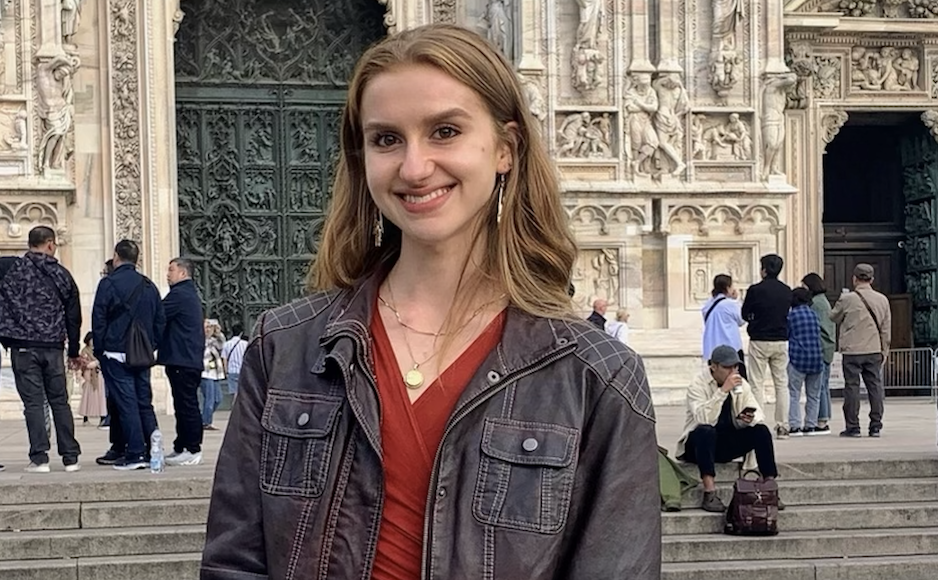Julie Kleaver, sociology major and spring 2024 graduate, has been chosen as one of seven 2024-2026 FAO Schwarz Fellowship recipients. The fellowship targets recent graduates who have exemplified academic excellence, leadership potential and a passion for social justice. Recipients are described as “big thinkers, doers and changemakers,” characteristics instilled in and shared by CLA Owls, like Kleaver.
Fellows enter a two-year program and work at a leading non-profit in New York, Boston or Philadelphia, developing the career skills and understanding necessary to deliver meaningful social impact to their communities.
Kleaver will be a fellow at Audobon Mid-Atlantic. The National Audobon Society is a non-profit organization that preserves bird habitats by supporting and conducting research, policy and advocacy work. The Mid-Atlantic chapter’s work also entails local conservation education and engagement initiatives at their four nature centers, which include the Discovery Center in Philadelphia.
“I got an email about the fellowship from Carissa Forde at the Joyce K. Salzburg Center,” recalls Kleaver. “It [seemed like] a good jumping-off point for new graduates who want to pursue a career in social impact or community service, which is what I was looking to do, and I was looking to do that specifically in an environmental context.”
As a sociology major, Kleaver says she’s long known she wants to “work with people, work with community services and work toward creating more cohesive communities.” Studying some of the larger systems that affect people’s lives motivated her to pursue a minor in environmental studies. Since then, she has developed experience interning and working with socially and environmentally conscious organizations like Natural Lands and the Norris Square Neighborhood Project. She also works in Temple’s Office of Sustainability as a Communications and Programming Assistant.
In her position at Audobon Mid-Atlantic, Kleaver will assist with community outreach and educational programming at the Discovery Center and teach environmental education lessons in elementary schools in its surrounding area. Beyond her work, she looks forward to meeting and learning from other FAO Schwarz fellows, past and present.
“I was really interested in the fact that you’re connected with the fellows in your city and other cities and can talk to them about their successes and what's working for them,” says Kleaver. “You kind of join a network and a community of like-minded recent graduates and past fellows who are of a similar mind in terms of social impact and pursuing careers in the nonprofit sphere.”
As she prepares for this next step, Kleaver is grateful for the opportunity that’s been presented to her. She admits that she “never considered [pursuing] a fellowship” before she received the e-mail about the FAO Schwarz fellowship.
“I was looking for a way to continue [connecting people to the environment] full-time when I graduated, and I think this fellowship presented a really unique opportunity to do that,” says Kleaver. “It provides a bridge from post-grad to having a full-time career.”
Recognizing the potential path that the fellowship creates for her, Kleaver imparts a bit of wisdom she’s taken from the process so far: “Don't cut yourself off from opportunities, just because you want things to go a certain way. They can be very fulfilling and, possibly, even better than what you had initially planned.”

